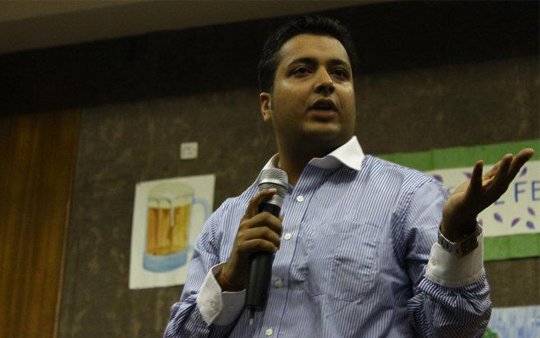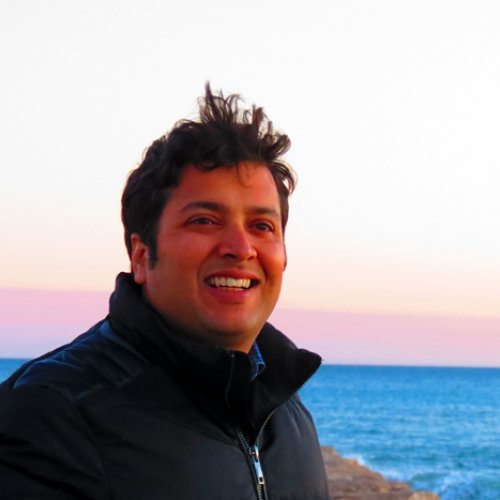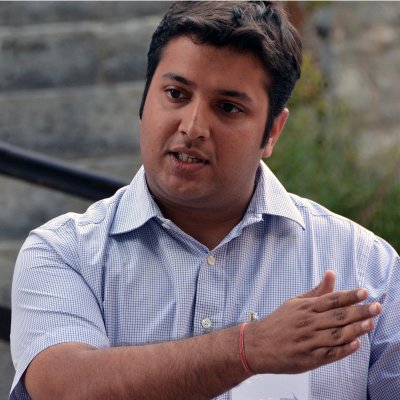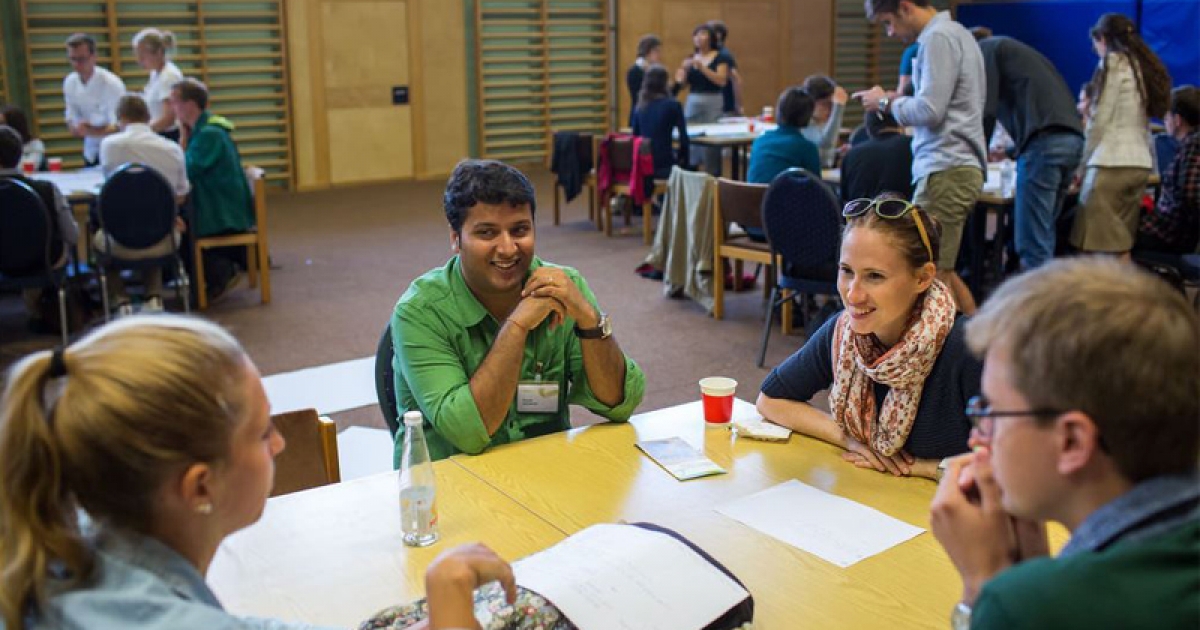“Everything in Life Teaches You a Lesson”
Piyush is from India. He is a dreamer. A dreamer on a mission. Piyush dreams of a world where humans are more considerate to not only fellow humans but also respect the environment that everyone takes for granted. He strongly believes in the concept of corporate social responsibility. He enjoys travelling to new places and understanding different cultures, and has travelled to more than 30 countries. Piyush Dhawan's mentor is Amin Nehme.
Q: Tell us a few things about your country, and also your life's story!
A: As Mark Twain said "India is the cradle of the human race, the birthplace of human speech, the mother of history, the grandmother of legend, and the great-grandmother of tradition. Our most valuable and most instructive materials in the history of man are treasured up in India only". Apart from being the largest democracy in this world, India also enjoys greater linguistic diversity than any other large country.
The precise number of languages spoken in India is probably over 1,000 and it is often said that the language changes every 100 kilometres you would travel. I was born in the capital city of New Delhi, which has a population of more than 21 million people comparable to the entire population of Netherlands. Living in a densely populated city such as Delhi has its own opportunities and challenges. I wanted to escape from the maddening crowd in 2010 and hence decided to pursue my masters in a small quaint town in Germany where I truly understood what it felt to have access to clean air and water. This is when I had an epiphany to return to my home city and bring about a change, a change for my family, a change for my society and a change for my city. I aspire to dedicate my career to altering business practices, making them more sustainable and considerate of the environment that many take for granted.
Q: What is your view of the world as it is today? And how do you define the concept of a better world?
A: I have been working in the environment sector and with businesses for the past five years. I believe that our planet has already provided us with enough resources, and the consumption-driven growth is resulting in overexploitation. The linear ‘take, make, and dispose of economic model relies heavily on large quantities of cheap, easily accessible materials and energy. This model has certainly reached its physical limits. For instance, a mobile phone contains a whopping 60 to 64 elements, some of them rare such as indium. If demand continues for indium, it will be gone in about 10 years; platinum in 15 years; and silver in 20 years. In order to just increase the battery life by 10 minutes, or better touch features, we have extracted rarest of rare metals. We use a mobile phone for a maximum of two years and then just dispose it, not thinking where it ends up (landfill or incinerated).
of this planet push the companies to provide us with products which are sustainable and does not harm the environment.
Q: What are some of the key challenges in your society?
A: I come from the largest democracy on this planet where still one-fifth of the population finds it challenging to earn two square meals earning less than $1.25 a day. India has a large young population (10-24 years old) of 356 million. It stands at a juxtaposition where decisions made today shall not only impact the population of the country but also would have an impact on this planet. It is said that if current consumption and production pattern continues, coupled with a rising population expected to reach 9.6 billion, then by 2050 we will need three planets to sustain our ways of living. It is hence imperative that we already start taking into account the sustainable use of biological resources. Current ways of production and consumption – seen on a global scale – do exceed sustainable exploitation of resources of the planet. This needs to be understood at all levels i.e. from government level to corporate level to consumer level. Even if one stakeholder has a different objective, it should be the responsibility of other stakeholders to ensure that everyone is on the same sustainable pathway.
Q: As a young individual what are a few of the hurdles that you had to overcome up until today?
A: I really like the saying “Life’s problems wouldn’t be called hurdles if there wasn’t a way to get over them”; one becomes stronger with every hurdle one crosses. One particular shortcoming I had to get over was the fear of public speaking. It became clear to me very early that if I have a fear of voicing my opinions in front of more people then I would never be heard. I am really lucky to have excellent mentors who helped me overcome that fear. Through rigorous training and perseverance, I am now confident in sharing my views in front of large audience.

Q: Why is the role of a mentor important for you?
A: I believe in lifelong learning. I see the role of a mentor as a significant one particularly in the continuous improvement of a mentee. I see a mentor as a coach, a source of encouragement or support, a resource person, and also sometimes as a devil’s advocate in helping a mentee think through important decisions.
Q: Do you have a lesson that life has taught you and you would like to share?
A: Everything in life teaches you a lesson. One just needs to have the willingness to observe and learn. This particularly is a larger than life question that would need some introspection. I believe one should respect others if he wants to be respected. Respect not only in terms of age or experience but also in terms of one’s religion and one’s life choices.
Q: Name a project, a foundation or a person in your country that you think is doing great work in helping improve other people's lives!
A: It is really hard for me to single out one project or a person in this case. I sincerely believe our teachers are the biggest source of inspiration in our life. As Nelson Mandela said, “Education is the most powerful weapon which you can use to change the world”. Teachers play the most important part in shaping the future of our next generation. My teachers have always been a source of encouragement for me.
Q: Share with us a phrase, a poem or a story that you love or you find interesting!
A: I particularly liked the phrase from Robert Swan “The greatest threat to our planet is the belief that someone else will save it”.
Q: Tell us one thing that you have learned from your mentor.
A: My mentor is a really good listener, this is something I also need to learn and practice. He has propelled me to think about the bigger picture in life, and to think more long-term so that my actions are aligned my goals.




